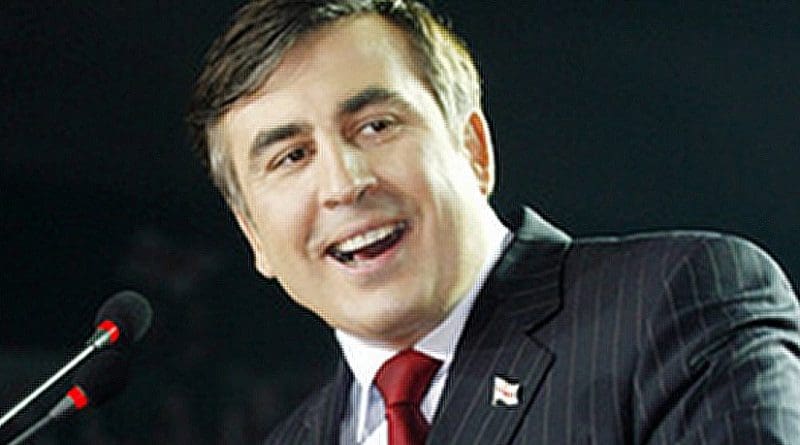Saakashvili’s Loss Of Georgian Citizenship: What It Means And What It Doesn’t – OpEd
By Paul Goble
The constitution and laws of the Republic of Georgia do not allow dual citizenship, and consequently and not surprisingly, Mikheil Saakashvili’s decision to take Ukrainian citizenship because of his work in Odessa has resulted in his loss of Georgian citizenship.
International law holds that individuals have a right to citizenship, but it does not establish a right to dual citizenship. That status is possible only on the basis of bilateral agreements between countries which agree that citizens of the one can simultaneously be citizens of the other.
Like most countries in the world, Georgia and Ukraine do not have such an agreement, and therefore a Georgian who takes Ukrainian citizenship or a Ukrainian who takes Georgian citizenship can expect to lose his status. But because Saakashvili was president of Georgia and because of his continuing international prominence, that has not been the end of this story.
In part, the Georgian authorities brought critical attention on themselves. President Giorgi Margvelashvili said that Saakashvili had been “stripped of his Georgian citizenship” after taking Ukrainian citizenship because “from the legal point of view, this is the only procedure and process envisaged by the law” (civil.ge/eng/article.php?id=28831).
But the current Georgian president added about his predecessor that Saakashvili had “insulted” the Georgian presidency and the Republic of Georgia by choosing to give up Georgian citizenship and taking Ukrainian citizenship. That suggested to some that this was an act of political retribution rather than a simple enforcement of Georgian laws.
Saakashvili responded in an interview with RFE/RL’s Ukrainian Service. He argued that the decision was “not just a legal act” but rather “the political act of scared and failed authorities” in Tbilisi who do not serve [Georgia’s] national interests” (radiosvoboda.ua/content/news/27407172.html).
The former Georgian president said that there were “several reasons” for that conclusion: “First of all, there is a two-year interim period envisaged by Ukrainian law for revoking the previous country’s citizenship. The Georgian government was well aware of it. Many [Georgia] citizens are working [in Ukraine] and have also taken Ukrainian citizenship.”
But unlike in his case, they have not lost their Georgian citizenship. “They can take my passport, but no one can revoke me of being Georgian and no one will make me lose infinite love for Georgia. We will definitely return and we will definitely win together,” Saakashvili told the Ukrainian service.
Saakashvili added that the decision of the Georgian government showed that they are “very much afraid of me” and want to prevent him from running for office in Georgia in the future. But the former president noted that he has “never said” that he wants to take part in any elections there.
Given that he faces numerous criminal charges in Georgia, charges that he says are all “politically motivated,” Saakashvili’s participation in any elections would be difficult under current conditions. Now that he has lost his citizenship, it would be almost impossible for him to run although he could still direct his opposition party, the United National Movement.
And as the Civil.ge portal notes, there is a loophole that might be applied at some point: “Although the Georgian constitution bans dual citizenship, it also allows the President to grant Georgian citizenship to a foreign national. [But] a foreign national has to apply for citizenship to the Georgian President.”
Some of Saakashvili’s supporters and some Georgian political analysts believe that his loss of citizenship will not reduce his influence in Georgia in the future (kavkaz-uzel.ru/articles/273762/), but other commentators suggest this action will open the way to his eventual trial in Georgia (ruskline.ru/news_rl/2015/12/07/saakashvili_na_nary/).

